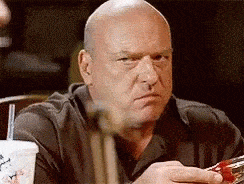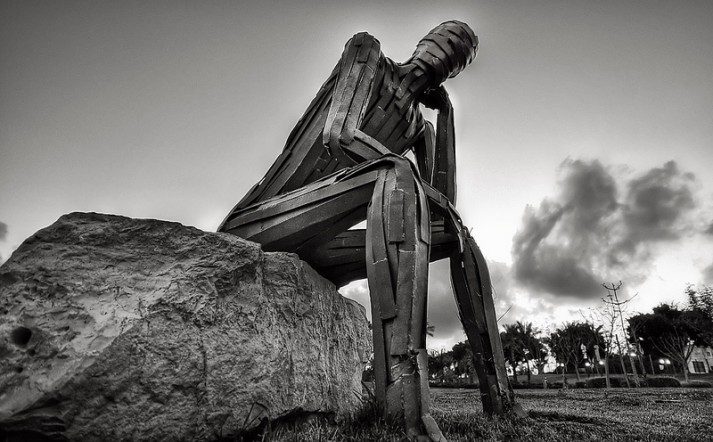
If you find yourself struggling to talk with people, or you want to try and meet NEW people, you’ve come to the right place!
Today we’re gonna teach you how to master a conversation, instead of staring at your feet hoping somebody else will come talk to you.
These are the 4 steps you can master to talk to ANYBODY about ANYTHING:
By the end of today’s article, your friends will need a muzzle to shut you up.
Believe it or not, we actually often work on “social skills” with our 1-on-1 NF Coaching clients.
Many clients are bettering themselves to start dating again, so we work hard to help them level up all areas of their lives.
Trying to improve your life? Learn how a Nerd Fitness Coach can help!
Okie dokie, without further ado, let’s jump in.
Step 1: How to Make Small Talk – and Not Suck at It


The main reason we human folk seek to connect with one another is that it scratches a social itch.
Our social needs are just like hunger and thirst—we eat, drink, and talk to people because there’s a gap between our actual state (hungry/thirsty/lonely) and our ideal state (satiated/quenched/connected).
Your brain is saying, “Dude, mind helping me out a little? I’m not where I want to be.”
The whole idea here is to feel better after than we did before.
You ever talk to people who are in a super sour mood?


It’s kind of contagious, isn’t it?
Unless you happen to be friends with people who can make crankiness charming (such as professional comedians), it’s usually a bit of a bummer.
Let’s not be bummers!
Let’s be those other kinds of people, the ones who leave our conversational partners in good moods after they talk to us.
Engaging in happy small talk isn’t just good for the people we talk to, by the way—it helps us as well. “Fake it ‘til you make it” is more than just a catchy rhyme.
The idea that acting a certain way encourages us to be that way has been around since Aristotle’s time. Take a look at his quote (from over 2,300 years ago!):
“Men acquire a particular quality by constantly acting a particular way.
We become just by performing just actions, temperate by performing temperate actions, brave by performing brave actions.”
Turns out the man knew what he was talking about.
A team led by Fritz Strack showed in 1988 showed[1] that simply holding a pen in your mouth in a way that simulates the muscle movements of smiling makes cartoons seem funnier than when you hold it between your lips like a straw; other studies have shown[2] that merely crossing your arms can make you more persistent!
So the next time you’re feeling surly and looking for a change, challenge yourself to talk to someone in a more upbeat way and see if that helps shake it off.
I’m not suggesting you bop around like sunshine and fairy dust, but isn’t it powerful to realize that by simply chatting with another person in a positive way, you can walk away from the conversation with both you and them feeling better off?
(Feel free to give a little mental fist bump to Aristotle when you see how well this works.)
Step 2: Talking to Random People


Good small talk adapts in real-time, thoughtfully and attentively applying to whatever is happening in the moment.
This may sound overwhelming at first, especially if you like to plan things to say out in advance. The trick is to take a step back and pick one thing, anything, on which to focus your attention.
There’s a finite list of what this thing will be:
- Whether it’s sunny, rainy, or snowy, that’s weather.
- Whether it’s a street parade, an art exhibit, or a hot tub limousine driving by, that’s scenery.
- Whether it’s someone with crazy shoes, a guy doing back handsprings, or a woman swinging from a chandelier, that’s people.
- Whether it’s a cute baby, a fluffy puppy, or a cool book, that’s belongings.
See how all of a sudden you can imagine having one or two prepared responses that can still perfectly apply to even the most novel of situations?
Now, this may only get you as far as your first or second line within a conversation, after which you may need to start coming up with stuff in the moment.
But the same logic of “step back/pick one thing” applies here too, and will help you keep from getting overwhelmed or panicking about what to say.
Here’s an example of small talk:
You: “I think I literally saw a cat and a dog raining down from the sky today.”
Them: “Ha! I know, right? I thought it was supposed to be spring.”
You: “It must be really tough to be a weatherman. You’re either stating the obvious or you’re a liar.”
Them: “My cousin is a weatherman.”
Curveball! You haven’t prepared anything about weatherman cousins! But this is interesting and novel enough to justify a conversational tangent all its own (and could fall under the category of jobs, if you wanted to add it to your earlier list). Try a simple question.
You: “Oh, interesting. How’d he or she get into that?”
Before you know it, you’re having a unique conversation, not banal “small talk”.
You’re also learning things about your conversational partner (and they about you), which will help you build from one-off conversations with strangers to consistent friendships and relationships with people.
Challenge yourself to identify these “one things” (weather, books, back handsprings) as you’re out interacting with people.
Use the comfort of a prepared line to open with if you like, but with the goal of finding something interesting that’s happening in that moment to comment on. Your conversations will instantly be more thoughtful, and the people you’re talking to will feel it, too.
Step 3: When to Be Quirky


My cousin Kim met my fiancé for the first time a few months ago.
As soon as we all sat down, she said to him, “Tell me every single thing about yourself, starting from birth, and ending with right now.”
I thought it was just about the greatest thing I’ve ever heard.
If my friend Jess is at someone’s house for the first time, she’ll say, “If I were the bathroom, where would I be?”
She gets the answer– and a chuckle.
My friend David struck up a conversation with a cute girl in Jiffy Lube by asking her if she thought the guy in the waiting room looked like a beagle.
He called me to thank me for introducing him to his girlfriend.
These examples all have in common the theme of turning awkwardness into awesomeness. They’re about being confident, not being smooth.
Sometimes dialing up the awkward dial can be just what everyone needs to loosen up a little, like when my friend Mike starts his presentations at work by saying, “If I seem incredibly nervous, it’s because I am indeed incredibly nervous.” It’s a bold strategy, to be sure, but it can be incredibly refreshing.
There’s something undeniably fun about someone who says, “I’m hugely overcaffeinated right now, so I may pass out at some point. How was your weekend?”
In short, don’t feel pressure to rigidly adhere to some abstract notion of what small talk should be, losing all of your own delightful personality in the process. You’re a member of the Rebellion, after all!
You challenge conventional wisdom and embrace the weird every day– let small talk be no exception.
Step 4: How Can I Be Fun to Talk To?


Remembering the little things? Sweet. Remembering every little thing? Creepy.
I happen to be in possession of a frighteningly good memory; I remember specific conversations (as well as where they took place, and what we were wearing) with people who couldn’t pick me out of a lineup.
I’m absolutely the person who goes up to people and says, “You’re a chiropractor? We sat next to each other on a plane from L.A. to San Francisco about a year ago, right?” Yes, right… but it didn’t matter. The dude was thoroughly creeped out, and I couldn’t blame him!
I’ve had to learn to hold back a little (okay, a lot) and not spew forth with every single thing I remember about my last conversation with someone the next time I see them.
Instead of: “how was that conference you went to in Phoenix?” go with, “You were going out of town when I saw you last, right?
Instead of: “Is your upper left molar feeling any better?” go with, “Hey, how’s it going?”
Like a good hairdo or pocket square, it sometimes takes a bit of effort in conversation to make it seem effortless, but it’s far preferable to freaking people out.
Take your time.
With each conversation, you’re watering a healthy plant, not dousing a fire.
In fact, leaving a bit unsaid is probably the best way to ensure future conversations, and give you something to talk about next time!
Besides, when you’re imprecise, you allow the other person to narrow in on a topic that they are comfortable with, rather than forcing them to talk about their upper left molar!
How Do You Interact with Others? (Start Talkin’)


With these four keys in mind, you’re ready to start small talkin’.
Challenge yourself to approach one person a day and strike up a conversation, even if it’s brief.
Like everything else we do in life, good social skills can be learned, developed, honed, and improved.
Though, it’s really tough to practice unless you commit to TRYING it out.
And who cares if the conversation goes poorly?
Odds are you will NEVER see that person again in your life, and your life is no different now than it was 5 minutes before the conversation.
Of course, the opposite could be true: you could meet somebody awesome.


And there’s only one way to find out which outcome you’re gonna get.
If you’re feeling really rusty, give it a shot with a friend or family member and ask for a little feedback afterward.
If you’re feeling bold, approach someone you wouldn’t normally talk to. If you draw a blank, ask a question.
Breathe, smile, listen.
Most of all, remember why you’re doing this, and remind yourself that you’re not imposing on someone by having a pleasant conversation with them—you’re making their day a bit brighter, and you should never be made to feel bad about that.
As always, I’m very interested to hear what you think, and how these lessons feel when you take them out for a spin.
We all crave regular social interaction; you might be surprised by how easy being good at small talk really is!
What are your major hangups with small talk?
Where do you plan to give these tricks a try?
-Lindsay Miller (good friend of Steve, and the Relationship & Social Skills expert of Nerd Fitness!)
PS: Like developing your social skills, getting healthy can be really intimidating, which is why we’ve built services and products to help you overcome the chaos and feel confident in the actions you’re taking every day:
#1) 1-on-1 Online Coaching: A coach from Team NF gets to know you better than you know yourself and builds a workout program and nutritional strategy that fits your busy life, your body type, and your goals.
#2) If you want an exact blueprint for learning new skills, check out Nerd Fitness Journey! Our fun habit-building app helps you exercise more frequently, eat healthier, and level up your life (literally).
You can even join our private community of nerds, many of whom are also trying to improve their social skills!
Try your free trial right here:
#3) Just want to learn more about what we do? That’s great too! Grab your free Nerd Fitness Starter Kit by clicking in the box below and I’ll send it right over!
Get your Nerd Fitness Starter Kit
- The 15 mistakes you don’t want to make.
- Full guide to the most effective diet and why it works.
- Complete and track your first workout today, no gym required.
###
photo source: lego small talk, happy, thoughtful, mw3016chi © 123RF.com, catchyimages © 123RF.com, storm trooper
Source by www.nerdfitness.com


